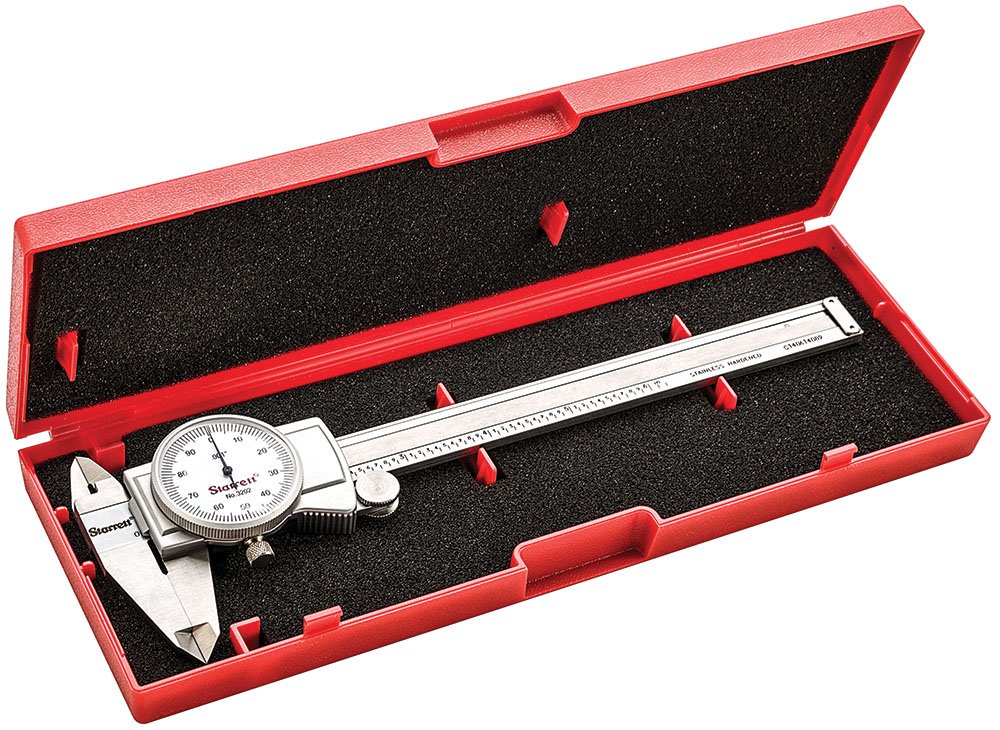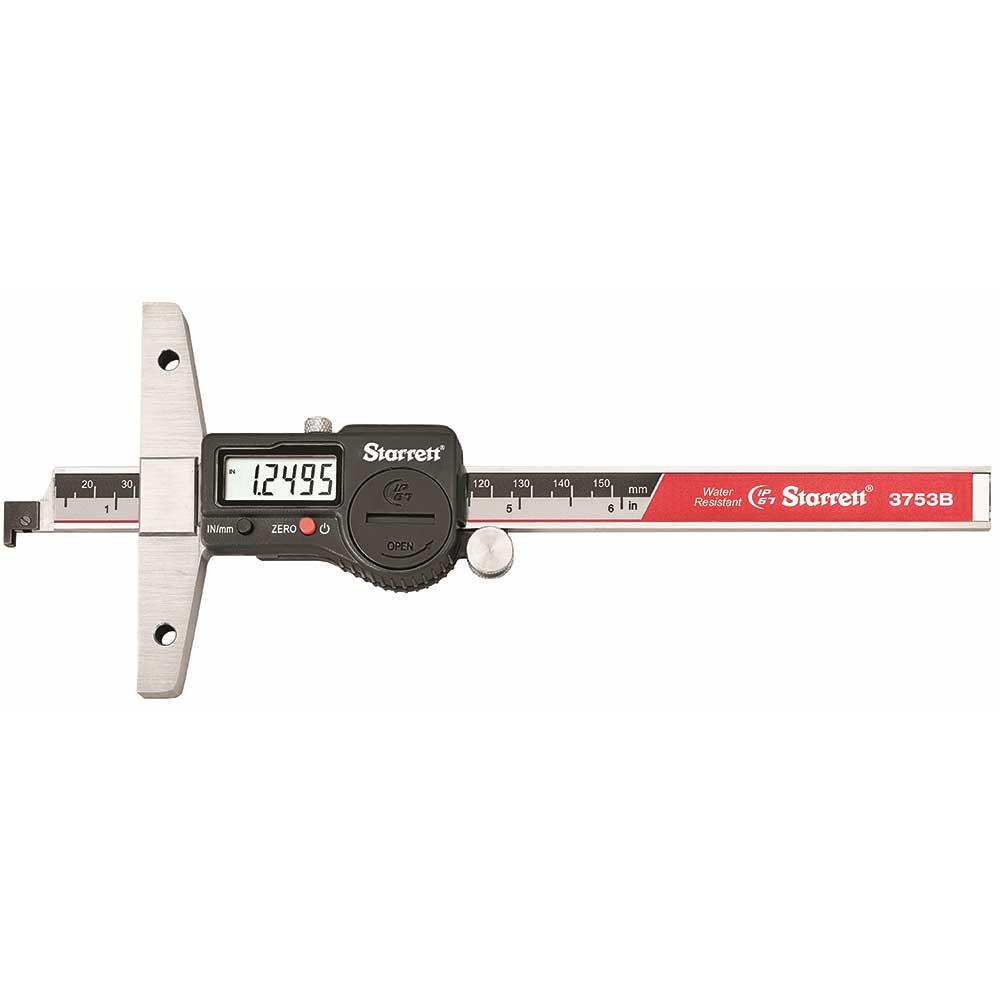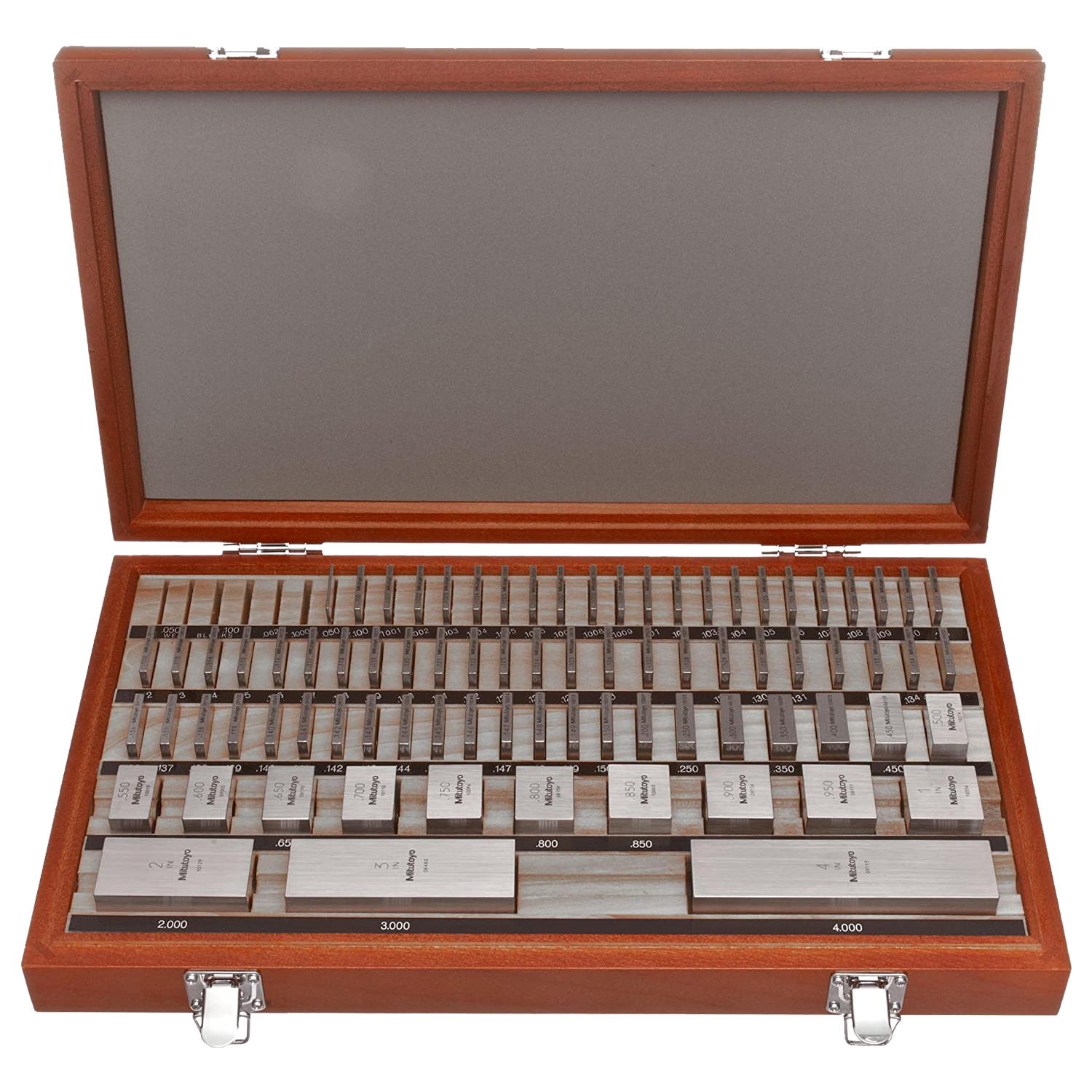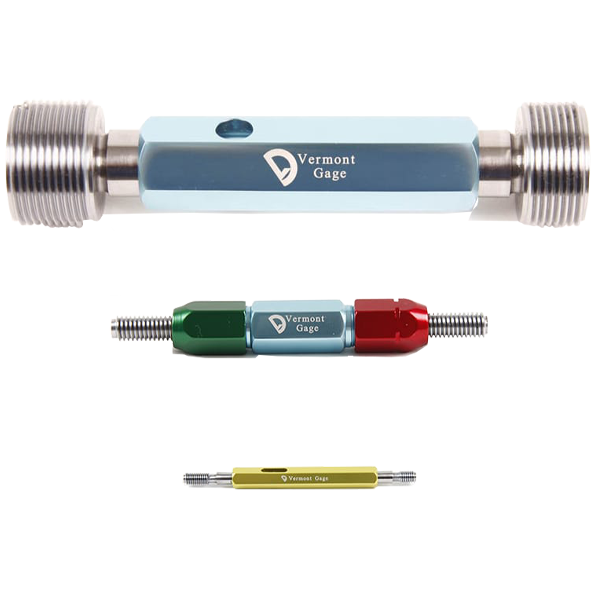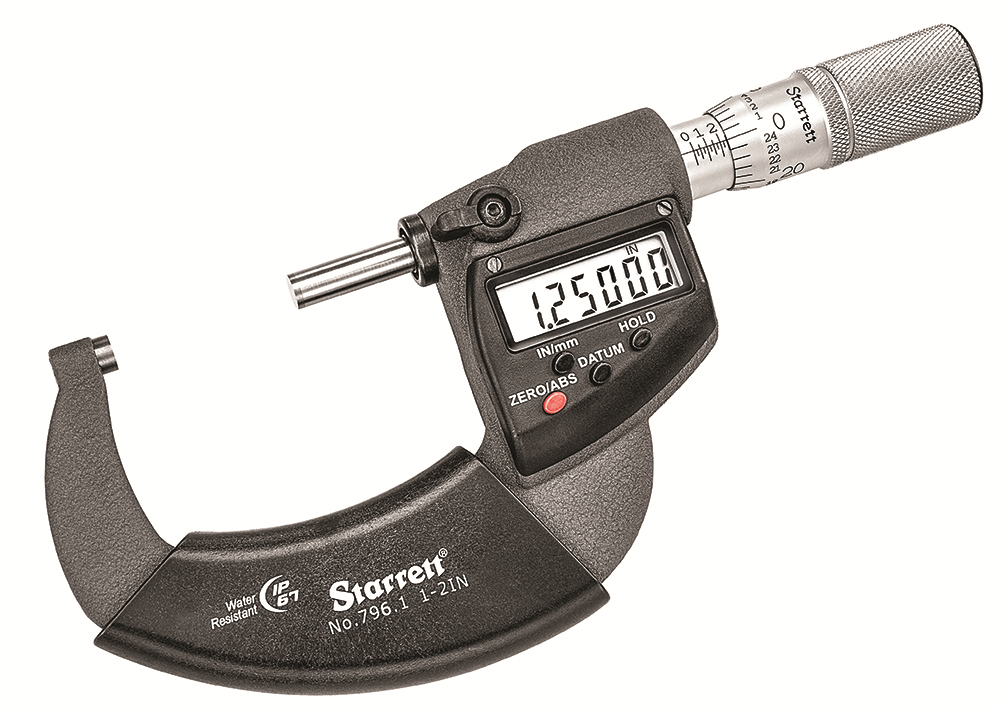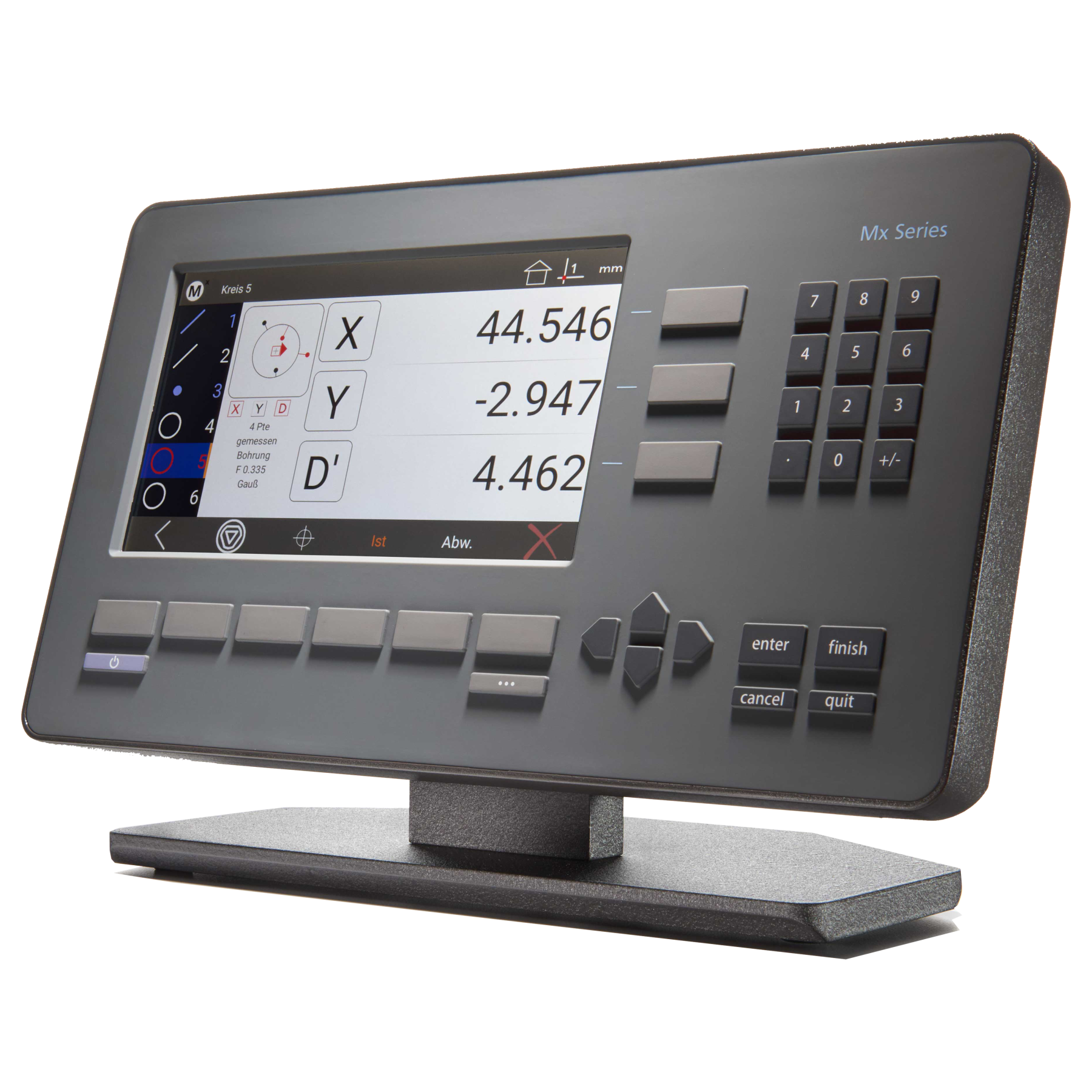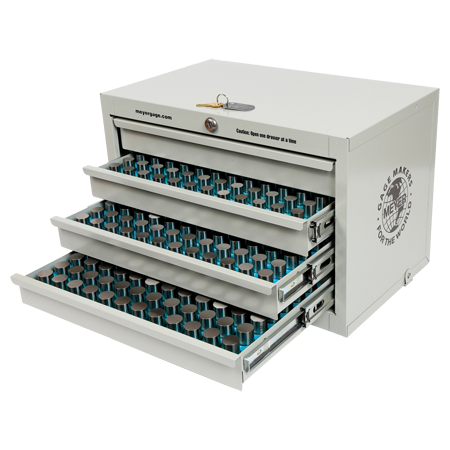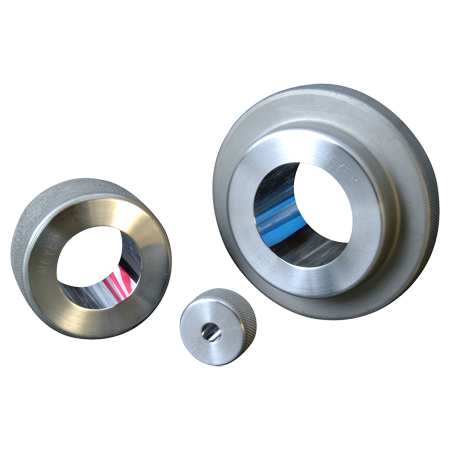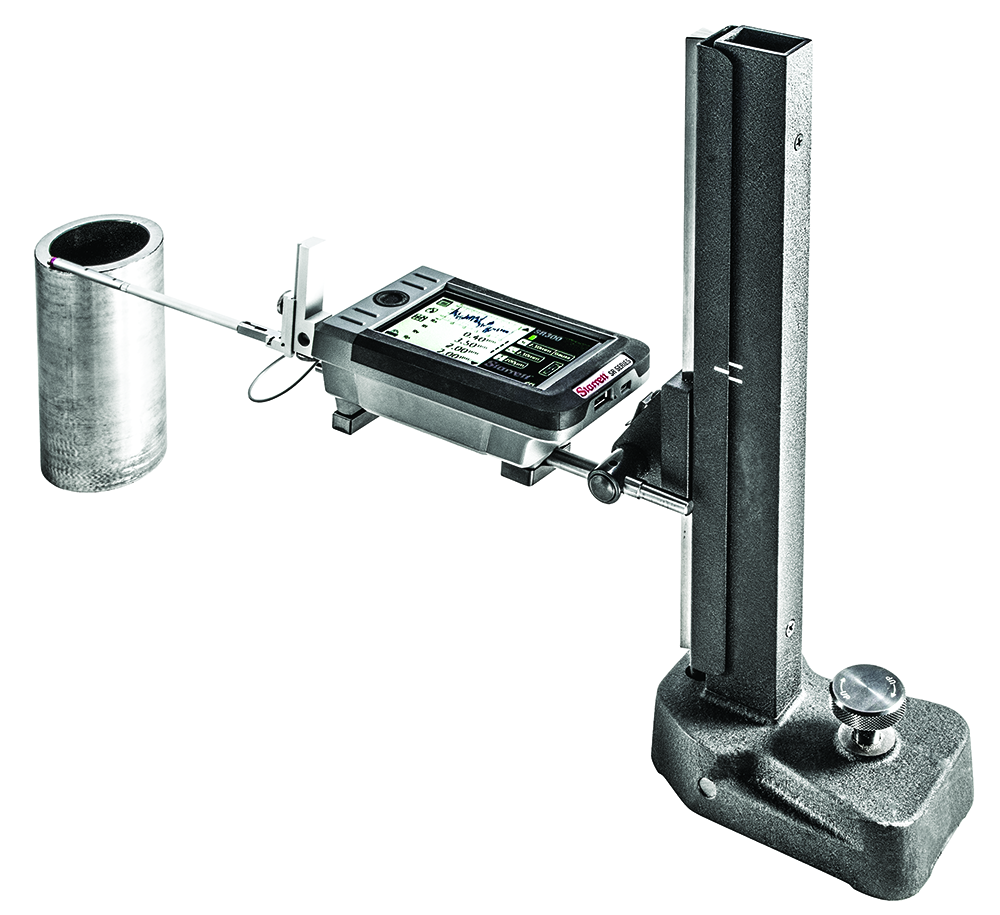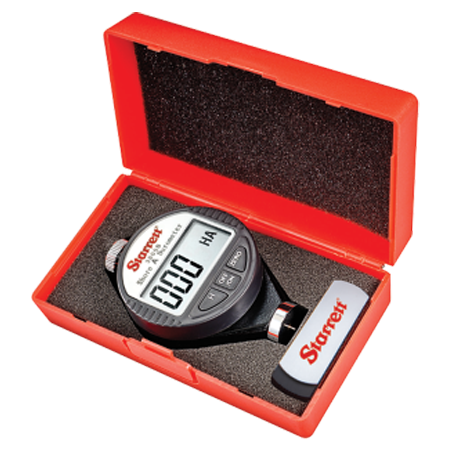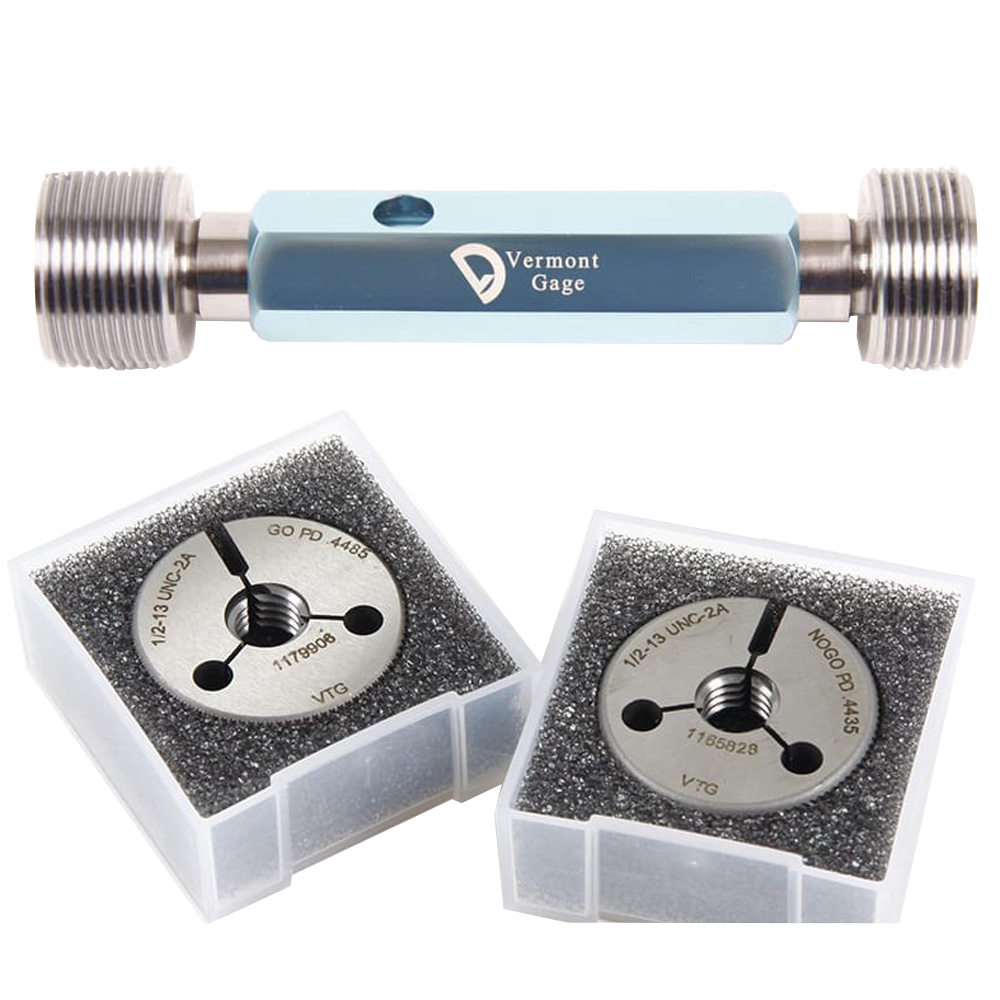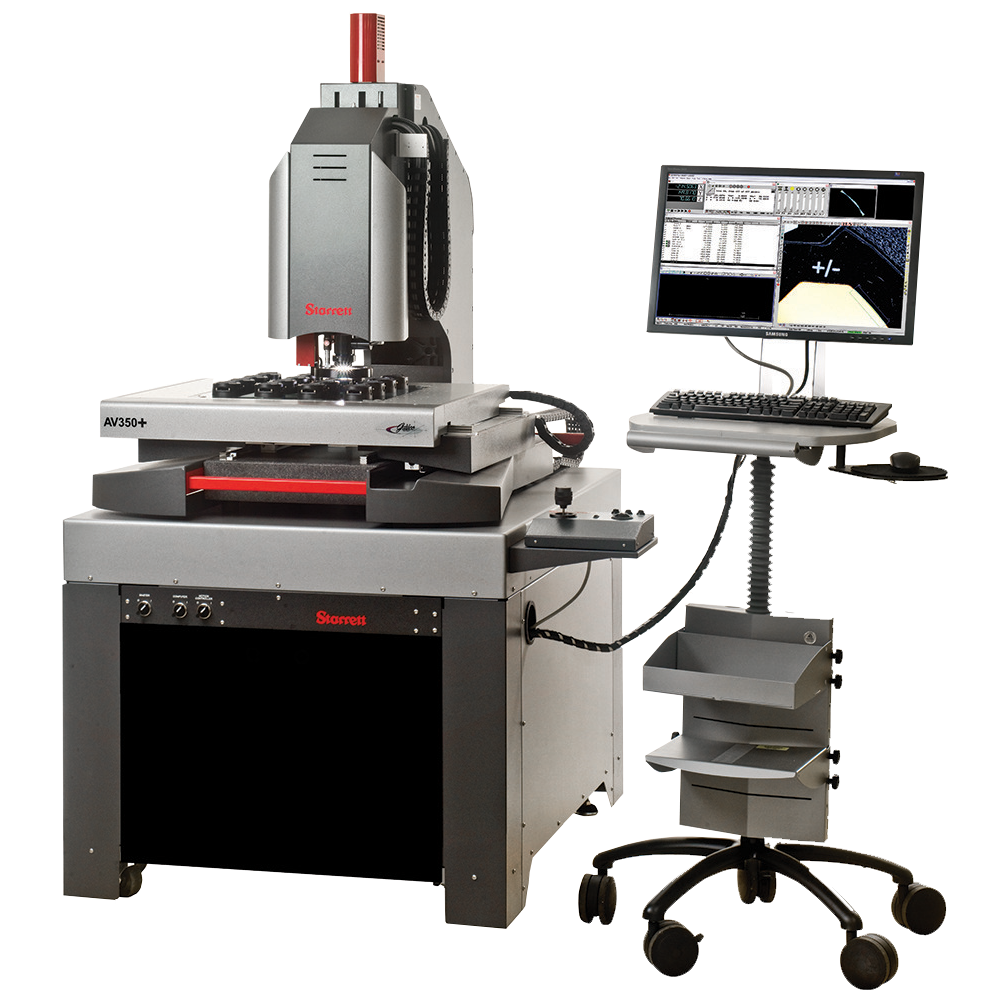A bore gage measures inside hole diameter with high accuracy. The controller can either turn a knob or release a trigger to extend pieces outward until the wall perimeter is touched by each contact. A bore gage is usually chosen by categorizing its precision measurement range, depth, accuracy requirements, and the number of contacts. A bore gage can have interchangeable measuring heads, different diameters, and extensions for depth, depending on their usage. A bore gage can also have electronic displays, micrometer-type vernier scales, or a dial that is similar to an indicator.
Calipers provide a large measurement range, flexibility and accuracy up to 0.001.” These tools typically measure outside, inside, depth, and step dimensions. Available in digital, dial, and vernier versions.
A depth gage can vary in form, complexity, cost and accuracy. The most accurate depth gages are a depth micrometer and a dial indicator depth gage. Less complex and precision measurement tools, such as rule gages and combination rule gages, are also available.
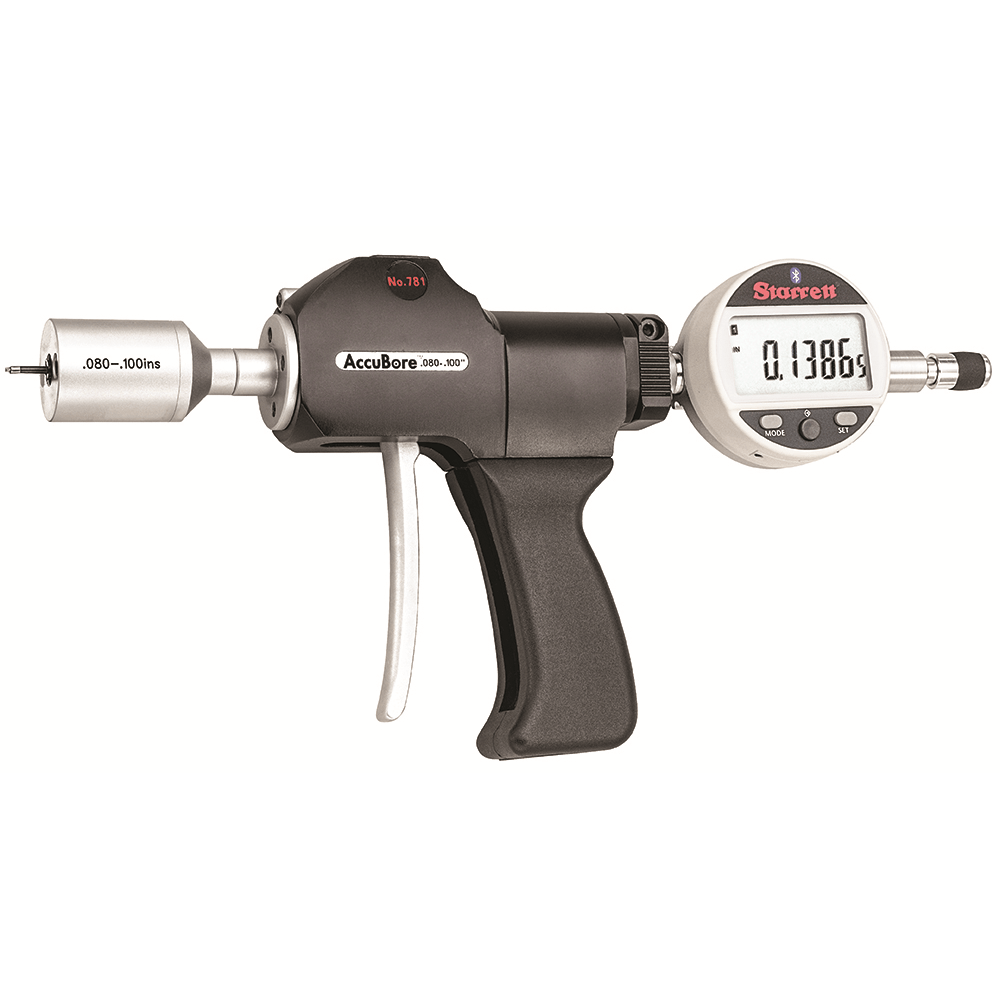
Bore Gages
A bore gage measures inside hole diameter with high accuracy. The controller can either turn a knob or release a trigger to extend pieces outward until the wall perimeter is touched by each contact. A bore gage is usually chosen by categorizing its precision measurement range, depth, accuracy requirements, and the number of contacts. A bore gage can have interchangeable measuring heads, different diameters, and extensions for depth, depending on their usage. A bore gage can also have electronic displays, micrometer-type vernier scales, or a dial that is similar to an indicator.
A digital or dial indicator is a precision measurement gage that shows movement visually, typically in very tiny increments. These are often used on fixtures that require repetitive inspection or adjustments on a machine. OCS Technologies offers a variety of each of the major classes in Dayton: mechanical dial, electronic display, lever style test and back plunger. Each type has its own unique strengths. Electronic indicators can output data, while analog dial indicators are easy to read and understand for anyone. Resolution varies from 0.001″ to 0.00005″.
These metal blocks are used to calibrate machinery and equipment to any precision measurement of various sizes and for different purposes.
A Go/No Go gage is a tool used to check if an item is within tolerance. Available as a plug gage, pin gage, or snap gage.
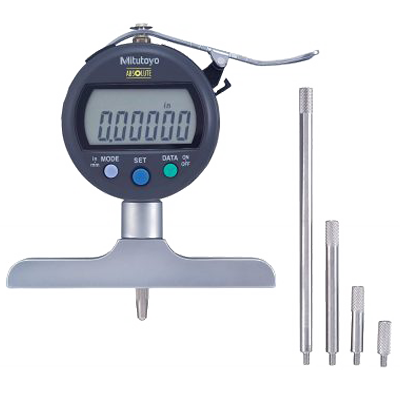
Digital / Dial Indicators
A digital or dial indicator is a precision measurement gage that shows movement visually, typically in very tiny increments. These are often used on fixtures that require repetitive inspection or adjustments on a machine. OCS Technologies offers a variety of each of the major classes in Dayton: mechanical dial, electronic display, lever style test and back plunger. Each type has its own unique strengths. Electronic indicators can output data, while analog dial indicators are easy to read and understand for anyone. Resolution varies from 0.001″ to 0.00005″.
Used from a flat surface such as a granite surface plate, height gages provide precision measurement of the distance from the reference surface to some feature of a part, and can do so with exceptional accuracy. OCS Technologies offers a full range of height gages in Dayton including electronic, dial, and vernier options. These tools are typically used in combination with the various scribes, attachments and accessories to complete the inspection work.
Precise machinist levels provide greater accuracy than common construction levels one might find at home. A precise machinist level must be used when the reference plane varies within the range of the level’s sensitivity.
A micrometer can come in a variety of types, including outside, inside, depth, bench, and heads. Precise measurement readouts are available in varying sizes with accessories and can be read as electronic, digital, and traditional vernier.
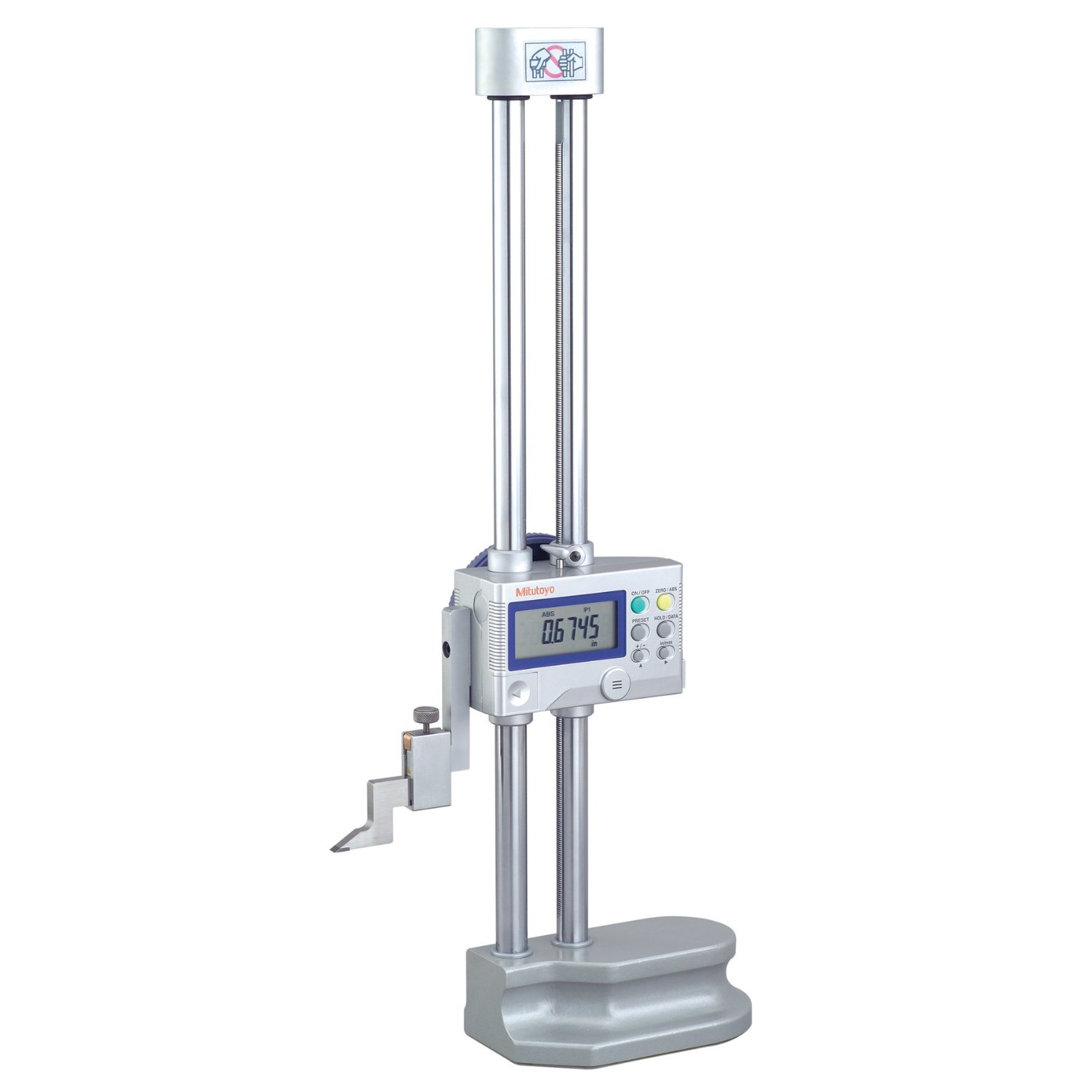
Height Gages
Used from a flat surface such as a granite surface plate, height gages provide precision measurement of the distance from the reference surface to some feature of a part, and can do so with exceptional accuracy. OCS Technologies offers a full range of height gages in Dayton including electronic, dial, and vernier options. These tools are typically used in combination with the various scribes, attachments and accessories to complete the inspection work.
Optical comparators offer durable and affordable solutions for non-contact 2D precision measurement. At the center of these systems are the precision optics, along with fine lighting and a highly precise workstage. They combine to ensure bright, sharp images and exceptional accuracy. With a vast selection of styles, sizes, stages, lenses and other accessories, OCS Technologies has a comparator for most any precision measurement application in Dayton.
OCS Technologies offers upgrade and retrofit Digital Read Outs (DRO) for existing optical comparators in Dayton. This ensures you have the most up to date precision measurement capabilities without investing in a complete replacement.
Pin Gages / Pin Sets are tools used to check if an item is within tolerance. Available as a single gage or in sets.
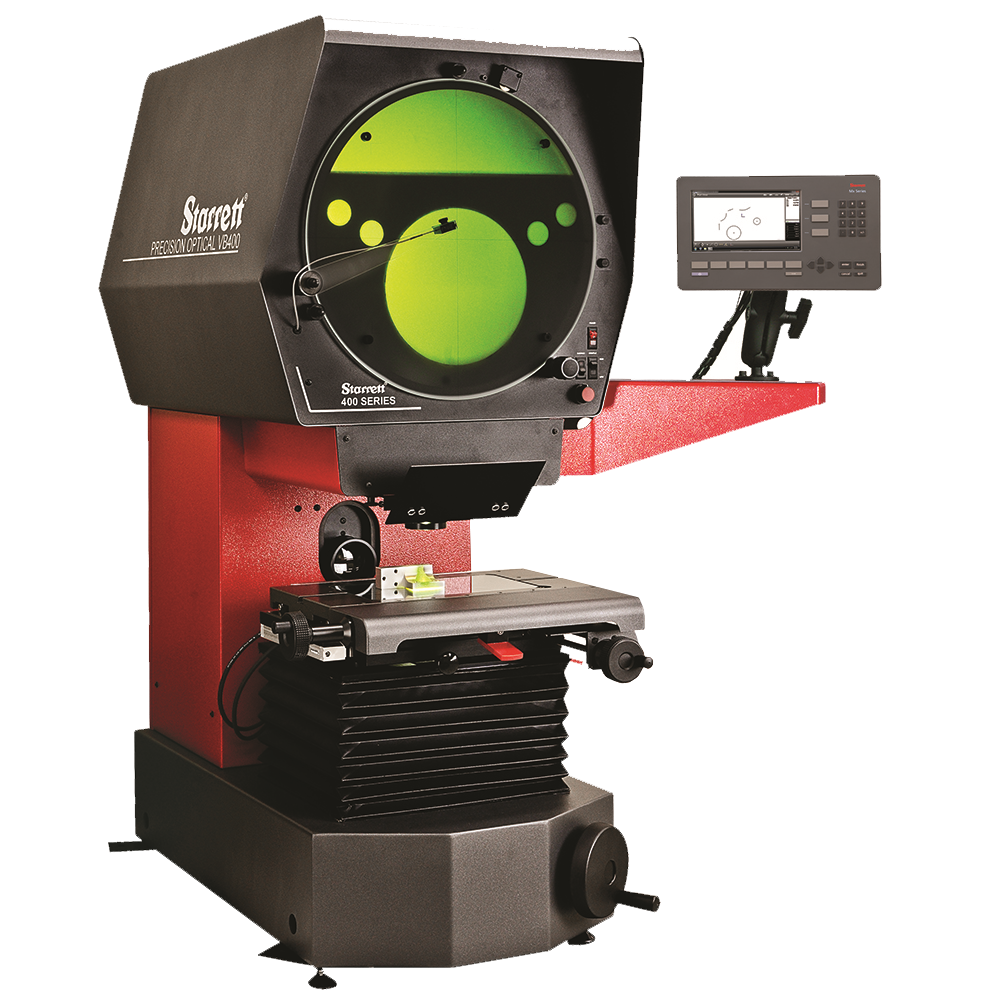
Optical Comparators
Optical comparators offer durable and affordable solutions for non-contact 2D precision measurement. At the center of these systems are the precision optics, along with fine lighting and a highly precise workstage. They combine to ensure bright, sharp images and exceptional accuracy. With a vast selection of styles, sizes, stages, lenses and other accessories, OCS Technologies has a comparator for most any precision measurement application in Dayton.
Ring gages are tools used to check external diameters as well as a calibration artifact for precision measurement.
Data collection is an increasingly important part of manufacturing, and one of the main drivers in the movement toward electronic precision measurement tools with output. This allows for real-time collection and recording of precision measurement data. transmission. From measurement to input, it reduces steps, saves time and can totally eliminate error in the data collection process.
Surface Roughness Testers measure the micro-irregularities, or roughness, of a given material or surface.
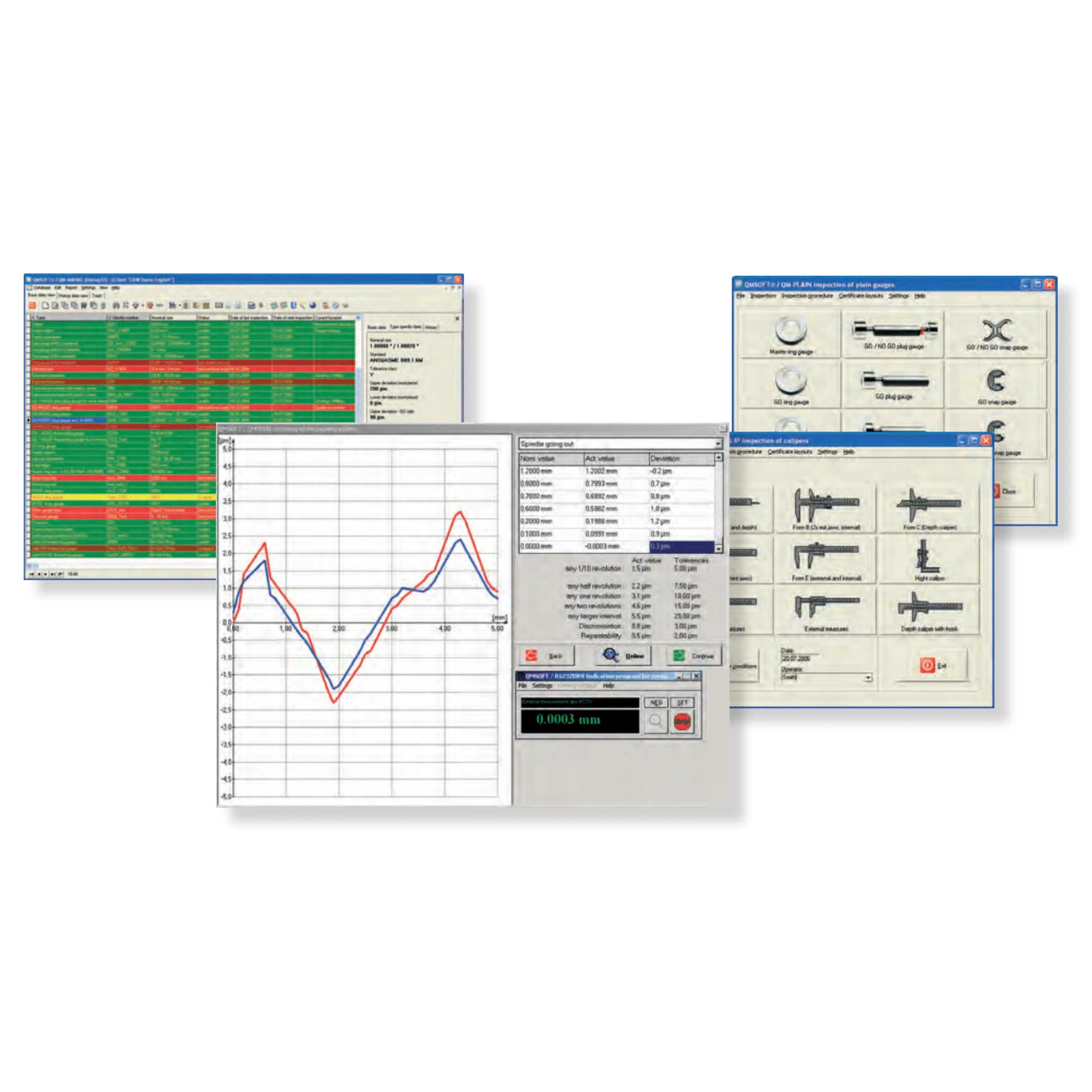
Software / Data Collection
Data collection is an increasingly important part of manufacturing, and one of the main drivers in the movement toward electronic precision measurement tools with output. This allows for real-time collection and recording of precision measurement data. transmission. From measurement to input, it reduces steps, saves time and can totally eliminate error in the data collection process.
OCS Technologies offers a complete line of dimensional and non-dimensional metrology precision measurement devices in Dayton that contain the latest in contact and ultrasonic technology.
Thread gages are tools used to check thread size, lead, and pitch of parts, fasteners, pipes, and parts that are threaded.
A visual or video-based measurement system will combine high-resolution images with dynamic, intuitive software and precise mechanical platforms for high accuracy and repeatable measuring applications.

